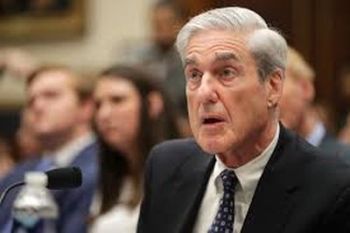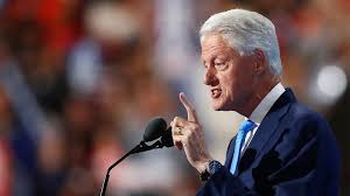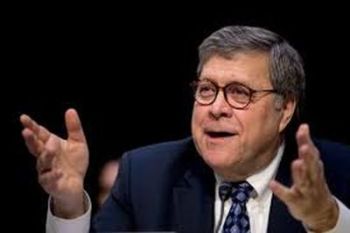Report from an alternative universe
From The New CriterionRousseau had identified the driving force in all political activity as something he called ‘the imagination’. This was what he believed ‘transported’ people out of themselves and empowered them to act on behalf of others. The [revolutionary] events in the Netherlands, in Switzerland and in Poland [in the 1780s] were instances of imagination run wild, but not quite in the sense he meant. The protagonists in these events were inspired more by blind faith in the power of their own will, and this was the enduring legacy of the American revolution.
Adam Zamoyski, Holy Madness: Romantics, Patriots, and Revolutionaries, 1776-1871
Adam Zamoyski’s, I find, is a helpful way of looking at the American revolutionary temperament — which must lie dormant in the American body politic, like certain kinds of disease in the body natural, and break out anew in acute form from time to time. So it appears to have done recently in the ever more exotic and revolutionary strains of leftist thinking being tried out by the small army of would-be Democratic challengers to President Trump. But all of them trail in the wake of the media which, presumably seeing themselves cast in the role of revolutionary vanguard, have for over two years produced redundant demonstrations of blind faith in the power of their own will to remake political reality in the Trump era.
You may have noticed, for instance, what a surreal experience just reading the daily papers has become. As I write, the headline to this morning’s Washington Post editorial tells me that “William Barr torched his reputation. His testimony compounded the damage.” Sounds pretty bad, doesn’t it? Though its not as bad as his being at the center of “a criminal administration” as one of that paper’s celebrated NeverTrump columnists put it. But then I turn over to The Wall Street Journal and read that, so far from having “torched” his reputation in his testimony before the Senate Judiciary Committee Mr Barr appears to have enhanced it by showing himself to be “A Real Attorney General.” This paragon, so far from having served “as another Trump sycophant” was instead, according to the Journal, “Quite the stand-up guy.”
Both things, clearly could not be true. More than that, we can say with confidence that if one is true, the other must be, as the president would put it, Fake News — and Fake News of the very fakest. At some level the people who wrote those editorials must have known this, just as they must have known that half the country would throw down their paper in disgust on reading their words. But then they also knew that very few people who are disinclined to think as they do ever would read those words, since they don’t bother to read their papers anymore. Having swapped news for “narrative” (see “The End of the News” in The New Criterion of September, 2016), they can be pretty confident that their readers are as committed to their carefully tended narrative as they are.
There is, however, an asymmetry between the two sides in this dispute — I was going to write “argument” but anything so filled with bald and acrimonious assertion can hardly be dignified by such a term. The Post is at liberty to opine that Mr Barr distorted the truth even if it has left the nature of the alleged distortion obscure. But the paper, in common with much of the rest of the media, has gone much further than this, by treating the Mueller report in its news pages as well as editorially as if it had been altogether as damning to Mr Trump as the anti-Trump narrative always hoped and expected it to be, and possibly even as grounds for impeachment. Mr Mueller’s nolo contendere on obstruction of justice was taken, as it was doubtless meant to be taken, as tantamount to an assertion of guilt — which Mr Barr was thought to have disgraced himself by disagreeing with.
Nor was it only the media, protective of the narrative in which they had invested so much of their dwindling stock of credibility, which chose to go on the rampage against the attorney general. Summoned to testify before the Senate Judiciary Committee, Mr Barr was accused of lying to his face by Senator Mazie Hirono. This slander (as committee chairman Lindsey Graham called it) was then repeated by none other than Nancy Pelosi, the Speaker of the House, who added that the attorney general’s “lie” to Congress had been a criminal act. What had inspired such an outrageous charge — if outrage were possible anymore in the media-created universe of discourse in which it has become routine — was a carefully timed leak from one of the anti-Trump zealots on the Mueller team to The Washington Post of a letter from Mr Mueller to Mr Barr complaining about the “context” of the latter’s summary of the former’s report ahead of its release.
If you read far enough into the article, you will find an account of a phone call between the two men meant to clarify their disagreement and this account of it: “When Barr pressed Mueller on whether he thought Barr’s memo to Congress was inaccurate, Mueller said he did not but felt that the media coverage of it was misinterpreting the investigation.” How the news media, Senator Hirono and Representative Pelosi following obediently behind, managed to turn Mr Mueller’s criticism of themselves into a pretext for charging Mr Barr with distortion of the truth might be considered by some to have been a distortion of the truth itself. But then, as I have noted before in these pages (see “Lexicographic Lies” in The New Criterion of September, 2012), the unparliamentary habit lately adopted by politicians and political observers alike of charging each other with lying is perhaps most often indulged in by those who wish to divert attention from their own lies.
As Andrew McCarthy wrote in taking on the Herculean labor of sorting through this morass of mendacity for National Review, “We are all entitled to our own opinions. But are we entitled to our own facts? Daniel Patrick Moynihan’s bon mot says no, but Washington makes you wonder.” It doesn’t make me wonder. As a regular peruser of the media, I have regularly found that “we” — meaning “they” — believe they are entitled to their own facts, at least when any facts come along which are inconvenient for the narrative of the day. We are now seeing just how far this process of denial can be taken. Revolutionary zealots like those led by the Post will come to believe through some Zamoyski-like process of blind faith that the report did not say what it plainly did say and did say what it only ambiguously and teasingly did not say, namely that Mr Trump was surely guilty of something, even if it could not discover what.
 |
Most bizarrely, the report itself had already been released by the time of all this kerfuffle about the attorney general’s summary of it. If there had been anything in it at variance with Mr Barr’s summary, you would think it would be obvious to anybody — as Mr Barr must also have known it would be when he was writing his account of it — and not have needed Mr Mueller to point it out, if he had pointed it out, which he hadn’t. “Why Barr Can’t Whitewash the Mueller Report” headlined The New York Times to an op ed by one of its bespoke experts. Er, could it be because the report has been published so that anyone may read it for himself? No! Necessarily futile though any attempt on Mr Barr’s part to “whitewash” the report would be, the Times, like Mrs Pelosi, simply assumes that that is what he must be trying to do. And that assumption can only be based on the further assumption that, whatever Robert Mueller and his team actually said in the report, he cannot have intended any exoneration of Mr Trump.
This much, as I have suggested above, was true, though it should have been a shame to Mr Mueller that it was so. As Emmet Flood, the special counsel to the president, pointed out in his letter to Mr Barr — a letter which got much less publicity than Mr Mueller’s — the Mueller report’s conclusion that the evidence “prevent[ ed] [it] from conclusively determining that no criminal conduct occurred.” was highly improper, since “making conclusive determinations of innocence is never the task of the federal prosecutor”
What prosecutors are supposed to do is complete an investigation and then either ask the grand jury to return an indictment or decline to charge the case. When prosecutors decline to charge, they make that decision not because they have “conclusively determin[ed] that no criminal conduct occurred,” but rather because they do not believe that the investigated conduct constitutes a crime for which all the elements can be proven to the satisfaction of a jury beyond a reasonable doubt. Prosecutors simply are not in the business of establishing innocence, any more than they are in the business of “exonerating” investigated persons. In the American justice system, innocence is presumed; there is never any need for prosecutors to “conclusively determine” it. Nor is there any place for such a determination. Our country would be a very different (and very dangerous) place if prosecutors applied the [Special Counsel’s Office] standard and citizens were obliged to prove “conclusively . . . that no criminal conduct occurred.”
Yet that is just the standard that the media and the Democratic majority in the House are applying — and applying to the president of the United States.
The political motivation of the Mueller team had been made obvious by the language of their report, though it should have been obvious from the moment of its appointment and was so to the president and his supporters. I think it must also have been obvious to Mrs Pelosi and his other detractors in Congress, but it never occurred to them that there could be anything wrong with that. That’s what revolutionary confidence in one’s own rectitude — which former President Obama used to refer to in quasi-Marxist terms as being “on the right side of history” — will do for you. They themselves were politically motivated in all their attacks against the president and didn’t bother to hide it, so why should not the Mueller gang do the same?
Similarly, the demand by Democratic committee chairmen in the House for Mr Trump’s tax returns, or for Mr Barr to come before them to submit himself to further abuse by Democratic members were nakedly political acts while pretending to come under the fig-leaf of legitimate congressional oversight. No doubt Greg Weiner is right to have written that “the real problem lies not with Barr but rather with Congress, which — having no institutional identity, much less self-respect, apart from opposition or loyalty to the President — farmed out its homework to Robert Mueller and now rues the conclusions he reached and the constraints they impose.” But, for the same reason (lack of institutional identity) there is nothing for the Mueller team and the Democrats to do about it now but to pretend that the report was as damning as they always wanted it to be as an excuse for their openly partisan investigations. They know that they can rely on the media’s support to keep anyone, apart from Trump-lovers, from noticing the imposture.
Moreover, as has been pointed out elsewhere, there are other reasons for the institutional Trump-haters to besmirch Attorney General Barr’s good name by any means necessary, for he has let it be known that he himself means to investigate the Obama-era justice department’s attempts to create the “Russian collusion” narrative with the help of the Clinton-sponsored Steele dossier that inspired the Mueller investigation in the first place. Kimberley Strassel of The Wall Street Journal writes:
Do not underestimate how many powerful people in Washington have something to lose from Mr. Barr’s probe. Among them: Former and current leaders of the law-enforcement and intelligence communities. The Democratic Party pooh-bahs who paid a foreign national (Mr. Steele) to collect information from Russians and deliver it to the FBI. The government officials who misused their positions to target a presidential campaign. The leakers. The media. More than reputations are at risk. Revelations could lead to lawsuits, formal disciplinary actions, lost jobs, even criminal prosecution. The attacks on Mr. Barr are first and foremost an effort to force him out, to prevent this information from coming to light until Democrats can retake the White House in 2020. As a fallback, the coordinated campaign works as a pre-emptive smear, diminishing the credibility of his ultimate findings by priming the public to view him as a partisan.
Not that the public needs much priming. For partisanship always has an interest in advertising itself as such in order to imply that any gainsaying of its partisan accusations, no matter how outrageous, must be similarly motivated. That’s how liars reap the chief benefit of accusing others of lying; that’s how Mr Barr’s rendering of what would otherwise be an unexceptionable legal opinion can be portrayed as “channeling” Mr Trump. And that’s how Mr Mueller’s prosecutorial misconduct escapes all media censure.
 |
Not for the first time we are driven to the conclusion that the two parties inhabit quite separate realities, as Bill Clinton said way back in 2012 when, speaking at the Democratic national convention in that year, he claimed that Republicans were living in an “alternative universe.” As a statement about the partisan divide, it was simply a shot across the Republican bows. As a statement about reality, however, it said something quite different. It said that there was no more reality, or none that need concern the world of practical politics or those engaged in it: there was only Democratic reality and Republican reality, and the two were “alternative” to each other. And that is where we find ourselves today.
What need, then, to take account of any contrary opinion, let alone make any argument against one in justification of one’s own? Some such thinking, whether inspired by revolutionary thinking or not, must be what lies behind the recent craze for banning people and ideas from social media — as mostly the same people and ideas have already been mostly banned from the public prints and from college campuses. To put beside the late Senator Moynihan’s wise but now outdated words about the difference between fact and opinion, the champions of free speech might formerly have cited the words of John Milton in Areopagitica: “Let her [Truth] and Falsehood grapple; who ever knew Truth put to the worse in a free and open encounter? Her confuting is the best and surest suppressing” Alas, Truth these days is regularly put to the worse in its contention with Falsehood — though it is doubtful that the encounter can ever again be described as free and open, so long as those who contend can be said to inhabit alternative universes.
Discover more from James Bowman
Subscribe to get the latest posts to your email.







